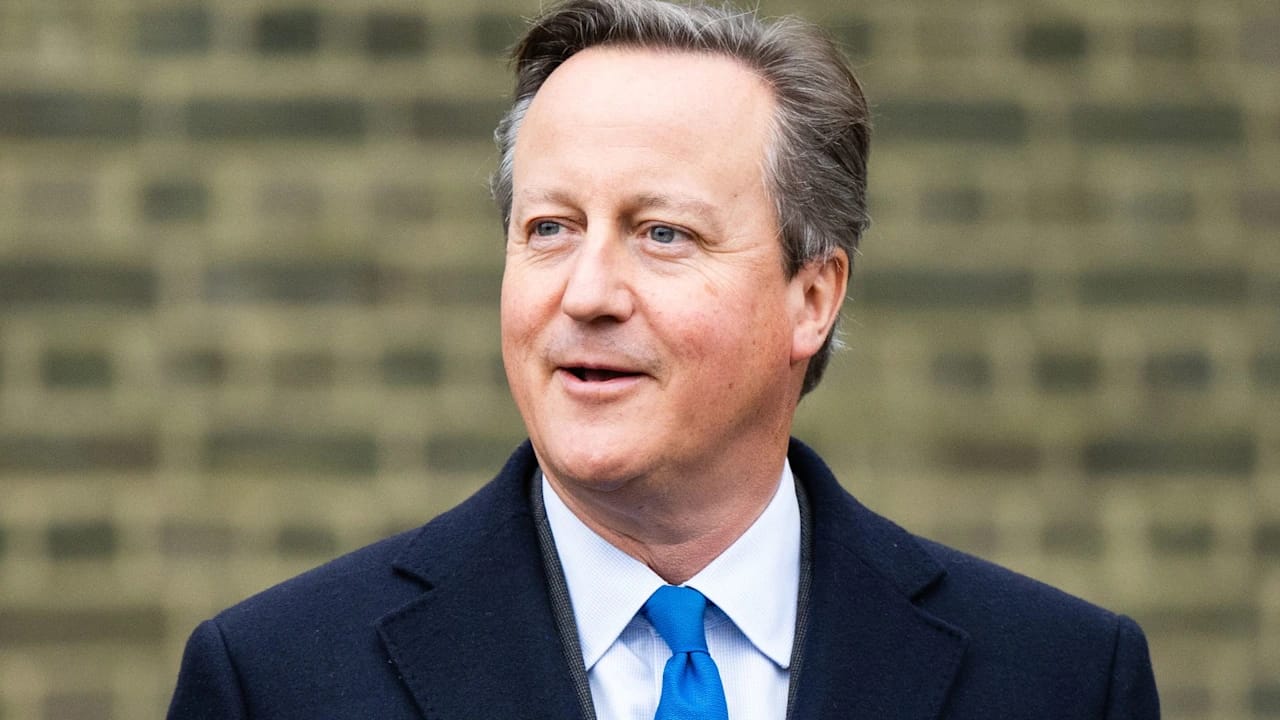Table of Contents
Early life
Born David William Donald Cameron on October 9, 1966, the prime minister-to-be spent the first three years of his life in London’s affluent Kensington and Chelsea borough, before his family relocated to Newbury. Growing up alongside siblings Alec, Tania and Clare, David says he had a “happy childhood” – following in his family’s esteemed footsteps by attending Eton. He achieved 12 “not very good” O-levels, by his own admission, but went on to gain four As at A level, and won a place at Oxford to read Philosophy, Politics and Economics. Before settling down to student life, he broadened his horizons by taking a gap year.
During this time he gained valuable experience working for a Sussex MP, then headed east to take up a post with a shipping agent in Hong Kong – returning on an extended rail trip through the Soviet Union and Eastern Europe. Surprisingly, David shunned student politics during his time at university, throwing himself into sporting activities such as tennis – he was captain of Brasenose College’s team – and becoming a member of party-loving Bullingdon dining club.
“He wanted to have a good time,” explains Steve Rathbone, an old chum. But his fun-loving antics didn’t cost him one jot. The bright student graduated with a first class degree and went on to get a job in the Conservative Research Department, quickly establishing himself as a major talent and progressing at an incredible rate.
Political career
Before long, he was briefing then-PM John Major for Prime Minister’s Questions. He went on to become a political advisor to home secretary Michael Howard before leaving to gain expertise in other areas – accepting PR work with ITV’s TV company Carlton, where he stayed for seven years as head of corporate communications. A year before jumping back into politics on a part-time basis, David tied the knot with his long-term love Samantha Sheffield, daughter of Sir Reginald Adrian Berkeley Sheffield, 8th Baronet, who he’d met through his sister Clare.
In 2001, he won the Conservative seat of Witney, paving the way for his rise up the political ladder. He became leader of the Conservative party in 2006, and went on to secure the majority of the vote in the 2010 election – but taking up post at 10 Downing Street was far from simple. Having fallen short of the 326 seats needed to form a majority government, a hung parliament was declared for the first time since 1974. Days of negotiations ensued, and the Conservatives formed a coalition government with the Liberal Democrats. David moved into Downing Street on May 12, six days after the election was held, and announced: “It’s a new era for Britain. Now, let’s get to work!”
If one word could be used to describe the Conservative government under David Cameron, it would be ‘austerity’. Cameron described the economic situation as he came to power as “even worse than we thought” and warned of “difficult decisions” to be made over spending cuts. Cameron claimed to prioritise the NHS, introducing the Health and Social Care Act 2012, which has been described as the most extensive reworking of the structure of the NHS ever undertaken – yet critics suggested that the bill encouraged privatisation.
In 2015 he won a second general election, ensuring his premiership and cementing his popularity. As per a promise in his manifesto, the Prime Minister called for a referendum as to whether Britain should remain in the EU – riding off the success of the Scottish referendum, which saw Scotland remain a part of the United Kingdom. He particularly supported Britain’s remain in the EU. As the results came in, announcing Britain would leave the EU, Cameron announced his resignation as Prime Minister.
Life after being prime minister
After Cameron left office, he became a Lord and became an advisor to Greensill Capital, holding share options in the company. Yet in 2020, Greensill collapsed; it had been discovered Cameron had lobbied for Greensill to join the Covid Corporate Financing Facility, a government loan scheme.
As Prime Minister Rishi Sunak reshuffled the cabinet in November 2023, he announced that David Cameron, no longer an MP, would return to parliament as the foreign secretary.
Personal life
He became a dad – to son Ivan, who was born in 2002 severely disabled and needing round-the-clock care for his cerebral palsy and severe epilepsy. Daughter Nancy followed in 2004, and son Arthur was born in 2006 – a year after he became leader of the Conservative party. But tragedy struck when little Ivan, just six years old, passed away on February 25, 2009.
“To start with I thought, ‘To hell with everything’,” David later said, revealing that the enormous grief of losing a child almost made him give up politics altogether. “You do, it’s just such a shock you can’t really come to terms with it to start with. But, bit by bit, you start to think, ‘Well, I need to get on with my life’. And to me my life is politics, it’s public service. It’s what I do.”
And, in the wake of their loss, there was happier news to come. The couple were “completely thrilled” when in the spring of 2010 – just ahead of the General Election – they revealed that Samantha was expecting another child in September. “The timing is obviously not absolutely ideal but we were very keen to have another baby after Ivan died and sometimes it takes a while before the stork drops one down the chimney!” said the proud dad. A bouncing baby girl named Florence arrived in August, one month early.
